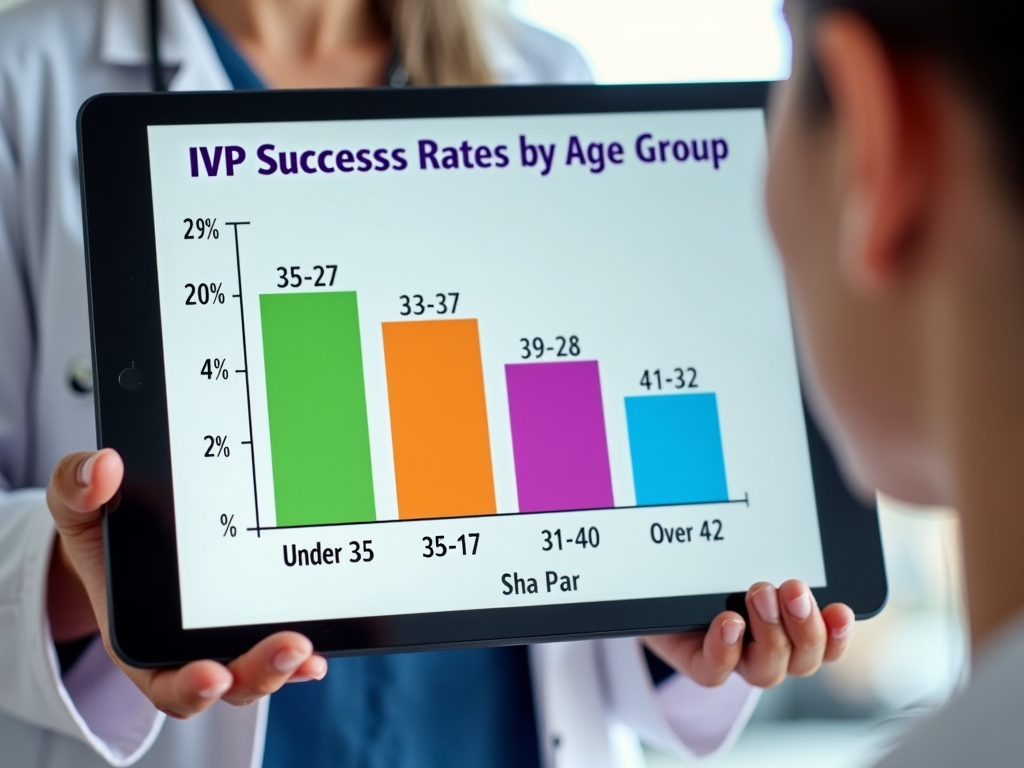Understanding IVF Success Chances: A Comprehensive Guide
April 26, 2025, 7:45 a.m.
Overview
Infertility can feel like an uphill battle, but In Vitro Fertilization (IVF) brings hope to many couples dreaming of a family. Knowing your IVF success chances helps set realistic goals and eases tough decisions. This guide dives into what affects those chances, walks you through the IVF process, and explains how medications play a part. Let’s break it down together.
What Are IVF Success Chances?
When we talk about Understanding IVF Success Chances, we mean the odds of IVF leading to a healthy baby. It’s not a simple number—it depends on many things, like your age or health. Success isn’t guaranteed, but learning what impacts it can make the journey less daunting. Let’s look at the key factors next.

Factors That Shape IVF Success Rates
Your IVF outcome hinges on several pieces. Here’s what matters most:
- Age: Younger women, especially under 35, often see higher success rates—sometimes around 40% per cycle, according to the CDC. After 40, those odds drop due to fewer and less healthy eggs.
- Lifestyle: Eating well, staying active, and skipping cigarettes or heavy drinking can boost your chances.
- Health History: Issues like PCOS or low sperm count can complicate things. Your doctor will dig into this.
- Clinic Skill: A top-notch clinic with experienced staff and modern tech makes a difference.
Every piece counts, so talk openly with your specialist.
Age is the big one. For example, a 30-year-old might have a 45% shot at a live birth per cycle, while a 42-year-old’s odds might dip below 15%, per the Society for Assisted Reproductive Technology (SART). It’s not just about eggs—sperm health matters too. That’s where lifestyle tweaks can help.

Navigating IVF: A Step-by-Step Guide
The IVF process can feel overwhelming, but breaking it down helps. Here’s how it usually goes:
- First Visit: You meet your doctor, share your story, and get tests to map out a plan.
- Egg Boost: Meds kick your ovaries into gear to make more eggs—think daily shots and checkups.
- Egg Pickup: A quick procedure grabs the eggs while you’re sedated.
- Fertilization: Eggs meet sperm in a lab, sometimes with a little help (ICSI).
- Embryo Growth: Lab pros watch the embryos develop for a few days.
- Transfer: The best embryo(s) go into the uterus—easy and painless.
- Support Phase: Hormones keep things on track post-transfer.
- The Wait: Two weeks later, a blood test tells you if it worked.
Each step builds toward that big moment.

IVF Medication and Its Role
Meds are the backbone of IVF. They help your body get ready and keep things moving. Here’s the rundown:
- Egg Growth Meds: Drugs like Gonal-F or Follistim (fertility drugs) push your ovaries to make more eggs.
- Timing Helpers: Lupron or Cetrotide stop eggs from releasing too soon.
- Trigger Shot: hCG gets eggs ready for pickup.
- Progesterone: Keeps the uterus cozy for the embryo.
These IVF medications can feel intense—bloating or mood swings might hit—but they’re key to success.
What about IVF medication and male fertility? If sperm quality’s low, meds might boost it, but often IVF skips that. Techniques like ICSI—where one sperm is injected into an egg—tackle male issues directly. Ask your doctor what fits your case.

Real Stories, Real Feelings
IVF isn’t just science—it’s personal. Here’s what some folks shared:
- Jenny, 32: 'The shots scared me at first, but my partner learned to help. We felt like a team.'
- Mark, 38: 'I hated feeling sidelined as a guy. Going to every appointment made me part of it.'
- Dr. Lisa Patel: 'I’ve seen patients thrive with support. It’s not just about meds—it’s about hope.'
These voices show the ups and downs. You’re not alone in this.
The emotional toll can hit hard. Sarah, 36, told me, 'After two failed rounds, I almost quit. Then my clinic suggested a new plan, and now I’ve got twins.' Stories like hers remind us: persistence and good care can pay off.

Costs and Emotions
IVF isn’t cheap—think $12,000-$15,000 per cycle, says the American Society for Reproductive Medicine (ASRM). Insurance might cover some, but not always. Then there’s the waiting, the hope, the letdowns. Having a friend, partner, or group to lean on keeps you grounded.
Tips to Boost Your Chances
You’ve got some control here. Eat lots of veggies, cut stress with yoga, and pick a clinic with solid stats—check SART’s database online. Small steps can tip the scales. One couple I know quit smoking together and saw better embryo quality next round.

Summary
Understanding IVF Success Chances means looking at age, health, and clinic quality. Navigating IVF: A Step-by-Step Guide shows it’s a process you can handle. Meds, from IVF medication to fertility drugs, drive it forward, even for male fertility challenges. Real stories prove support and grit matter as much as science. You’ve got this—one step at a time.